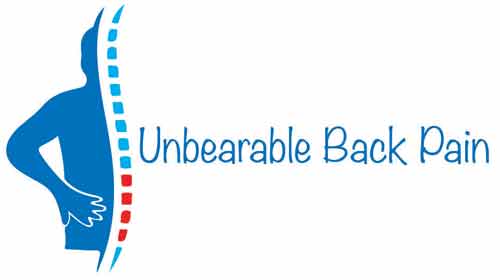If you’re grappling with back pain, you’re not alone. Chronic back pain can be a significant hindrance to your daily life, often limiting your mobility and comfort. It’s a widespread issue that can stem from various causes such as injury, age-related wear and tear, or even stress.
If you fall into one of these categories, you may well have heard about TENS therapy but wondered a) what is it? or b) is it any good?
TENS stands for Transcutaneous Electrical Nerve Stimulation, a method that uses low-voltage electrical currents to relieve pain. This probably sounds a lot more dramatic than it is. A TENS machine is merely a small portable device that delivers these currents through electrodes attached to the skin.
These pulses work in two ways – first by stimulating nerves to release your body’s natural painkillers, called endorphins, and second, they can block the pain signals to your brain thus providing relief.
TENS therapy can be effective, especially when part of a comprehensive pain management plan. It’s non-invasive, which makes it an attractive option for many. I was first advised to use a TENS machine by my physiotherapist and to be honest, I was more than a little wary. The thought of using a machine that passes electric pulses through my body did not appeal and I’m certain I’m not the first or last person to experience that sensation. But let me reassure you that it’s not like sitting in an electric chair, even though your mind may tell you you’re heading to death row! Using the machine correctly isn’t just about knowing where to place the electrodes, but also about finding the right TENS device for your specific needs and learning how to use it correctly.

Setting Up Your TENS Machine for Maximum Benefit
Choosing the right TENS machine for back pain can be crucial to your pain management success. It’s no good just picking any device that you happen upon. You must set about finding the one that fits your needs. You’ll want to consider the device’s features, such as adjustable intensity levels, timer options, and the number of available channels.
You’ll need to ensure the unit is fully charged or has new batteries, then carefully read the manufacturer’s instructions before you start.
For electrode placement, it’s essential to pinpoint the painful areas. Generally, placing the pads on either side of your spine, at the level of the pain, is a good start. Avoid placing them directly over the spine.
Determining the ideal session length and frequency is also key. Many users find relief with sessions ranging from 20 to 30 minutes, once or twice daily. However, this can vary based on your level of pain and how your body responds to treatment. You can always adjust the length of the sessions and the number of times per day you use the machine once you become familiar with the comfort and results.
Real-world Experience
Rather than recount stories of faceless people who’ve used TENS machines to manage their back pain (and there are millions worldwide) I can speak from experience which hopefully will bring some sense of reality to your choice of machine. This isn’t just a story, it’s an insight into the practical application and real impact of TENS therapy.
I suffered a severe back injury as a young man while playing football. For the next twenty years, I accepted my injury would restrict my movements and activities until it was decided that I needed spinal surgery. I won’t bore you with the details, but it’s suffice to say the operation(s) were not a great success. But on my road to recovery, I was fortunate enough to be recommended to a physiotherapist who changed my life both physically and mentally. I will forever be grateful that I met her.
As well as instructing me on how to carry out exercises, she also realized that pain can cause mental issues in so far as you are regularly worried about the long-term effects of a back injury. The physical exercises certainly helped but the pain continued, and it was at this point that she recommended the use of a TENS machine.
I started using a TENS machine and a few months later noticed an impressive reduction in my lower back pain. My flexibility had improved and I became more productive at work. I think it’s only right to say that using a TENS machine did not bring about a miracle cure. But what it did was relieve pain and allow me to go about my daily routine far easier than if I didn’t use one. You may not find immediate relief the first time you use a machine. I found that I needed to adjust the settings and the number of times a day I used it. But within a week I had cracked it and I never looked back.
This approach was confirmed by the positive outcome seen in a broader case study. An article published in the Journal of Pain Research suggested that patients with lower back pain who used TENS therapy reported better pain management than those who didn’t.
As I said, TENS isn’t a cure-all. It’s crucial to be aware of precautions and know when TENS isn’t advisable, such as if you have a pacemaker or are in the early stages of pregnancy.
Enhancing Your Pain Relief Journey Beyond TENS
Always remember that it’s important to indulge in complementary therapies and exercises and not rely solely on your TENS machine for back pain relief. Consider gentle stretching, yoga, or physiotherapy exercises designed to strengthen the muscles in your back, which can reduce pain and improve spinal health over time.
Simple lifestyle changes can also make a significant difference in managing your back pain. Pay attention to maintaining good posture, investing in ergonomic furniture for your workspace, and taking regular breaks to walk and stretch during long periods of sitting. These small adjustments can lead to big improvements in back pain management.
While talking about pain management, it’s crucial not to forget the value of seeking professional medical advice. If your back pain persists or worsens, you must see a healthcare provider to get a thorough assessment. They can offer a tailored treatment plan and perhaps suggest exercises or treatments that work in conjunction with your TENS therapy.
Earlier I said that I first started using aTENS machine many years ago. I am happy to say that my machine is still alive and kicking, and although I no longer need to use it so often, it was worth every penny that I invested. I have recently carried out research and found that although the basic technology remains the same, the designs have of course improved.
Here’s a little transparency: Our website contains affiliate links. This means we may receive a small commission if you click and purchase. Don’t worry, there’s no extra cost to you. It’s a simple way you can support our mission to bring you quality back relief content.”





Hi – I enjoyed your post on TENS unit therapy and found it very interesting. I have had back pain as well. A chiropractor put me on a TENS unit and it really did help. I was sure to follow his instructions very carefully on how to use. I never had to buy a machine though, as I just used the one the doctor had. My mom had one that she used often. A funny story: My mom actually worked for a chiropractor and she would help the patients with the machine and therapy. My mother was convinced though that the machine was called a “TINGE” unit because that was the feeling it gave you – a tinge. I never could convince her any differently. She did work for a chiropractor after all!
– Scott
Hi Scott
A nice story that compliments my experience. The initial feeling can be unusual, but when you feel the benefits you realize just how beneficial it can be.